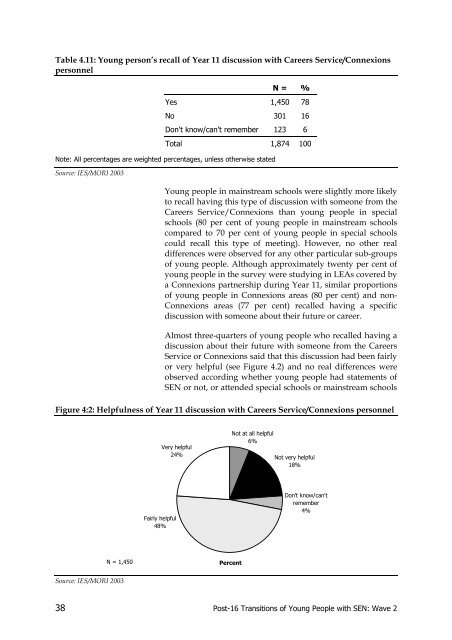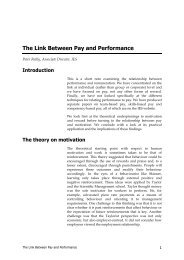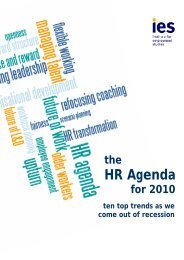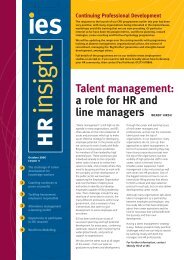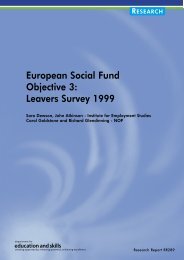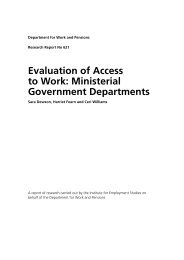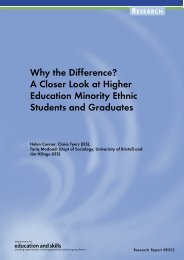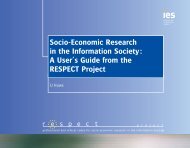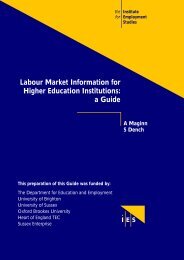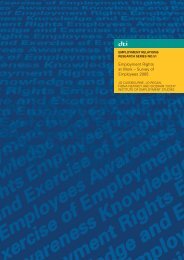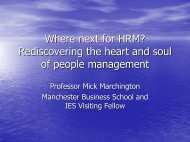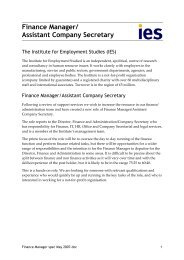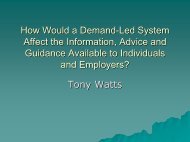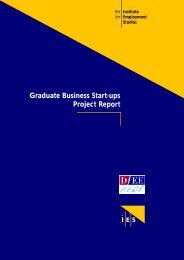Post-16 Transitions: a Longitudinal Study of Young People with ...
Post-16 Transitions: a Longitudinal Study of Young People with ...
Post-16 Transitions: a Longitudinal Study of Young People with ...
Create successful ePaper yourself
Turn your PDF publications into a flip-book with our unique Google optimized e-Paper software.
Table 4.11: <strong>Young</strong> person’s recall <strong>of</strong> Year 11 discussion <strong>with</strong> Careers Service/Connexions<br />
personnel<br />
N = %<br />
Yes 1,450 78<br />
No 301 <strong>16</strong><br />
Don't know/can't remember 123 6<br />
Total 1,874 100<br />
Note: All percentages are weighted percentages, unless otherwise stated<br />
Source: IES/MORI 2003<br />
<strong>Young</strong> people in mainstream schools were slightly more likely<br />
to recall having this type <strong>of</strong> discussion <strong>with</strong> someone from the<br />
Careers Service/Connexions than young people in special<br />
schools (80 per cent <strong>of</strong> young people in mainstream schools<br />
compared to 70 per cent <strong>of</strong> young people in special schools<br />
could recall this type <strong>of</strong> meeting). However, no other real<br />
differences were observed for any other particular sub-groups<br />
<strong>of</strong> young people. Although approximately twenty per cent <strong>of</strong><br />
young people in the survey were studying in LEAs covered by<br />
a Connexions partnership during Year 11, similar proportions<br />
<strong>of</strong> young people in Connexions areas (80 per cent) and non-<br />
Connexions areas (77 per cent) recalled having a specific<br />
discussion <strong>with</strong> someone about their future or career.<br />
Almost three-quarters <strong>of</strong> young people who recalled having a<br />
discussion about their future <strong>with</strong> someone from the Careers<br />
Service or Connexions said that this discussion had been fairly<br />
or very helpful (see Figure 4.2) and no real differences were<br />
observed according whether young people had statements <strong>of</strong><br />
SEN or not, or attended special schools or mainstream schools<br />
Figure 4:2: Helpfulness <strong>of</strong> Year 11 discussion <strong>with</strong> Careers Service/Connexions personnel<br />
Very helpful<br />
24%<br />
Not at all helpful<br />
6%<br />
Not very helpful<br />
18%<br />
Fairly helpful<br />
48%<br />
Don't know/can't<br />
remember<br />
4%<br />
N = 1,450<br />
Percent<br />
Source: IES/MORI 2003<br />
38 <strong>Post</strong>-<strong>16</strong> <strong>Transitions</strong> <strong>of</strong> <strong>Young</strong> <strong>People</strong> <strong>with</strong> SEN: Wave 2


